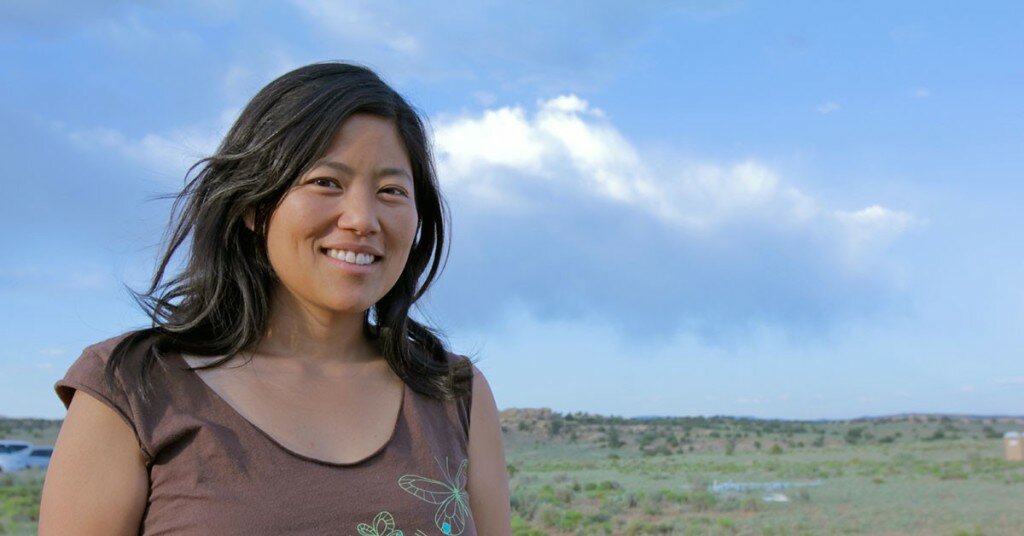

The role of philanthropy in any just transition is critical. Getting funding for a program can mean whether or not that program continues to exist, or is axed. Trouble is, organizations who are working on systems change in order to bring about a just transition often aren’t funded long-term. This often means they are beholden to yearly re-application and arduous restrictions on what can and cannot be done with the grant they’ve received. (Chorus photo: Vivian Huang, Campaign and Organizing Director at Asian Pacific Environmental Network)
That’s what makes the Chorus Foundation so unique. Chorus is more interested in long-term, place-based funding for organizations in communities on the frontlines of climate justice. And after ten years of work, Chours founder Farhad Ebrahimi has some reflections to share about what’s worked for them, why they believe in funding just transition strategies, and what other funders can learn from their experience.
I should say, in full disclosure, that the Chorus Foundation is a long-term committed funder of the Mountain Association for Economic Development, of which this blog is a product. However, that connection has nothing to do with why we believe the foundation’s approach is so important. Take Ebrahimi’s explanation about why it’s so important to help build a just transition with philanthropy (bolding is my emphasis):
Here’s something that everybody knows: things have got to change. Our extractive system simply cannot be allowed to continue unchallenged. In fact, we can see that things are already changing; it’s inevitable. But justice is not inevitable, and any response to the climate crisis needs to be both timely and just. We need to be able to get from NO (what we don’t want) to YES (what we do want) in a way that respects the dignity and meets the basic human needs of everyone involved. It’s important that we understand that this is not a given; a clean energy transition is not necessarily a just one.
A just transition, then, is one that does not simply address climate change as an ecological crisis, but that addresses the political and economic inequity at its roots. This means creating an economy in which everyone can find meaningful work; an environment in which everyone has access to clean air, clean water, and a stable climate; and a democracy in which everyone has a say.
The crux of what just transition is all about is this: “Justice is not inevitable.” It’s what we have believe at MACED for nearly 40 years, it’s what the Appalachian Transition movement is all about, it’s what so many organizations within and outside of the region are working toward.
We know that truth to be fundamental because we work within a region dominated by fossil fuel extraction in it’s economy, policies and politics. And that domination means that we have to fight for justice that will usher in a better tomorrow. Without people on the ground in eastern Kentucky communities fighting for a broad-based economy that benefits the highest possible number of our neighbors, and pushing for that equity at every stage of our transition away from coal, it won’t come to us.
Knowing there are funders and philanthropists out there that what those things for us, too, makes a huge difference to what we are able to do as organizations and groups working in frontline communities. We hope more foundations will follow Chorus’ lead.